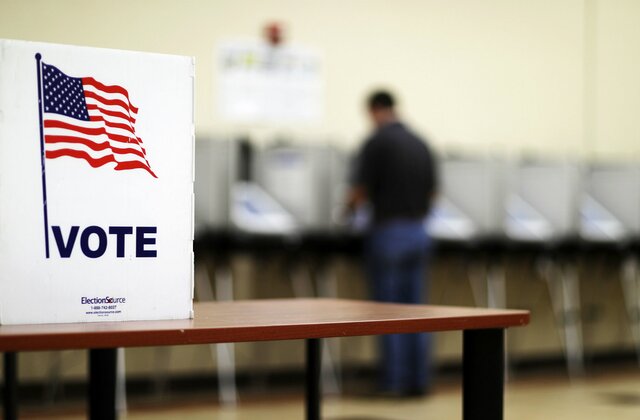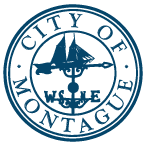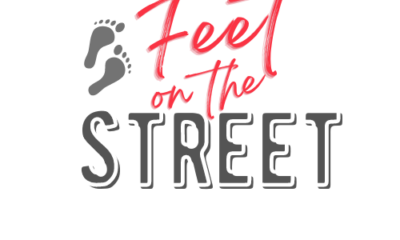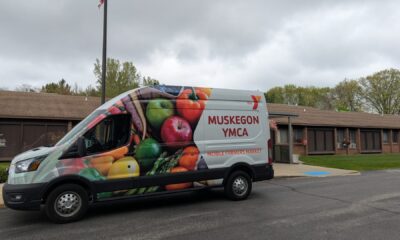
WHITEHALL- Whitehall District Schools are once again asking voters to approve a renewal of the district’s non-homestead operating millage—this time on Tuesday, May 6, 2025. The request follows a narrow defeat in the November 2024 general election, when 53.1% of voters rejected the proposal.
The district has emphasized that this millage is not a new tax and does not apply to primary residences. Instead, it applies to non-homestead properties—such as businesses, vacation homes, and rental properties—and is a critical component of day-to-day funding.
Why the Millage Matters
Since 1994, Michigan law has required public school districts to levy up to 18 mills on non-homestead properties to receive the full per-pupil foundation allowance from the state. That funding supports the district’s General Fund, which covers:
- Teacher and staff salaries
- Transportation and utilities
- Classroom instruction and supplies
- Extracurricular programs
- Daily operational expenses
Due to a Headlee Amendment rollback in 2024, the district’s rate dropped to 17.9832 mills, preventing Whitehall from receiving full funding. If the millage fails again in May, the district could lose an estimated $4.17 million in revenue in 2026 alone—leading to deep cuts in staffing, programming, and services.
What’s on the Ballot
The May 6 ballot asks voters to approve a renewal of the non-homestead operating millage not to exceed 20 mills. While the district is only allowed to collect up to 18 mills, the extra 2 mills serve as a cushion against future Headlee reductions—ensuring the district can consistently receive its full state funding.
Importantly:
- This will not increase anyone’s current tax bill
- It does not apply to owner-occupied primary residences
- It is a renewal, not a new tax
A Note of Debate: A Policy Workaround?
While the district’s proposal is legal and common across the state, some observers and policy experts note that this approach may dilute the intent of the Headlee Amendment itself. Originally enacted in 1978, the Headlee Amendment was designed to limit government revenue growth without voter reauthorization—rolling back millage rates when property value increases outpace inflation.
Critics argue that authorizing more than 18 mills upfront, even if only 18 are collected, acts as a workaround to the Headlee rollback, effectively allowing districts to maintain maximum taxation levels without returning to voters for renewed approval. Over time, this can be seen as circumventing the amendment’s core principle: to give taxpayers more direct control over how much government units can collect.
Supporters of the millage say the extra mills are simply a necessary safeguard against unpredictable economic conditions, and help maintain funding stability without constantly asking voters to go back to the polls. But for some taxpayers, the concern remains that this strategy weakens the fiscal restraint Headlee was intended to enforce.
Strong Community Voices Speak Out
Local residents, parents, and alumni have taken to social media to advocate for the importance of the upcoming vote.
Kristy Roberge offered a clear summary of the basics:
“This is NOT a tax on a homeowner’s PRIMARY RESIDENCE. This will NOT raise your taxes on your PRIMARY RESIDENCE. This will fund DAILY operations—staff salaries, classroom supplies, busing expenses, and utility bills. If you would like further clarification, please contact Superintendent CJ Van Wieren at 231-893-1010 or attend the Board of Education meeting on March 17 at 6:30 p.m. at the Viking Athletic Center.”
Derek Temple echoed that sentiment, emphasizing the foundational role schools play in community identity:
“Whitehall District Schools is the heart of the White Lake community… We’re not talking about a bond here—though that’s needed too—but an essential operating millage that covers the basic costs of running our schools. This will simply extend the current millage and ensure we have essential funding for the future. This is a no-brainer—let’s get it passed on May 6 so we can then focus on a bond to fund capital improvements.”
David Garvey reminded the public of what’s at stake:
“It is very important that this millage passes on May 6 to ensure that Whitehall District Schools can operate at normal levels! Talk to your friends and neighbors—urge them to vote to keep the basics funded in our district.”
A Powerful Lesson from the Past
Several community members pointed to past consequences of failed millage votes in other districts—specifically Fruitport—where the community and schools suffered for years.
Terry Temple reflected:
“Fruitport failed to pass the operating millage when my sister was in 8th grade and I was in 10th. It was a huge blow. Several classes were cut, teachers were lost, and ALL sports were eliminated. Families moved out, property values dropped, and it took a decade to recover. I remember leaving school at 1:00 p.m. because the district could only afford five class hours per day—the bare minimum required for graduation.”
He added:
“With all the growth at Howmet and future investment in the region, failure to pass this millage could also impact the district’s ability to attract skilled workers and new families. This is a decision that could shape the trajectory of our district for years to come.”
Kyle Kurant joined the conversation, recalling how that failure fueled a loss of talent:
“Muskegon Catholic Central gained many great athletes and people during that time. Fruitport’s loss became someone else’s win.”
Looking Ahead
The failed November vote prompted Whitehall Schools to host community engagement meetings to gather feedback and address public concerns. Interim Superintendent CJ Van Wieren and district leaders have been actively working to communicate the importance of this renewal and to rebuild community trust and awareness.
As the May 6 vote approaches, the district urges residents to be informed, attend public meetings, and reach out with questions.
Quick Facts for Voters:
- Election Date: Tuesday, May 6, 2025
- Does NOT affect primary residences
- No increase in taxes—this is a renewal
- A failed vote could cost the district $4.17 million annually
- Would directly impact daily operations: teachers, busing, athletics, classroom needs
For More Information:
Superintendent CJ Van Wieren
Phone: 231.893.1010
Email: [email protected]
Next Board of Education Meeting: April 21, 6:30 p.m., Viking Athletic Center
Kara Raeth is the DMM Service Lead at CatchMark Technologies, bringing over 15 years of experience in web development, customer service, and project management. She joined the company in 2019 as a Web Developer and has since expanded her role to include office management, accounts receivable and payable, and project management. Kara proudly served in the U.S. Army, where she specialized in signal and communication intelligence—developing a strong foundation in secure communication and technical systems. Her combined military background and digital expertise make her a vital asset to CatchMark’s digital marketing and media operations.
Must See
-


Community
/ 12 hours agoCity of Montague Council Meeting Recap – May 19, 2025
The Montague City Council met on May 19, 2025, for its regular monthly meeting...
By Kara Raeth -


Community
/ 2 days agoWhite Lake Area summer starts with a celebration
Feet on the Street is back and ready to bring the fun! Join the...
By Amy Yonkman -


Arts/Entertainment
/ 2 days agoTunes Around Town: May 20–25 Music Lineup
Live music and a long weekend? Count us in! 🎶 Eight Whitehall and Montague...
By Amy Yonkman












